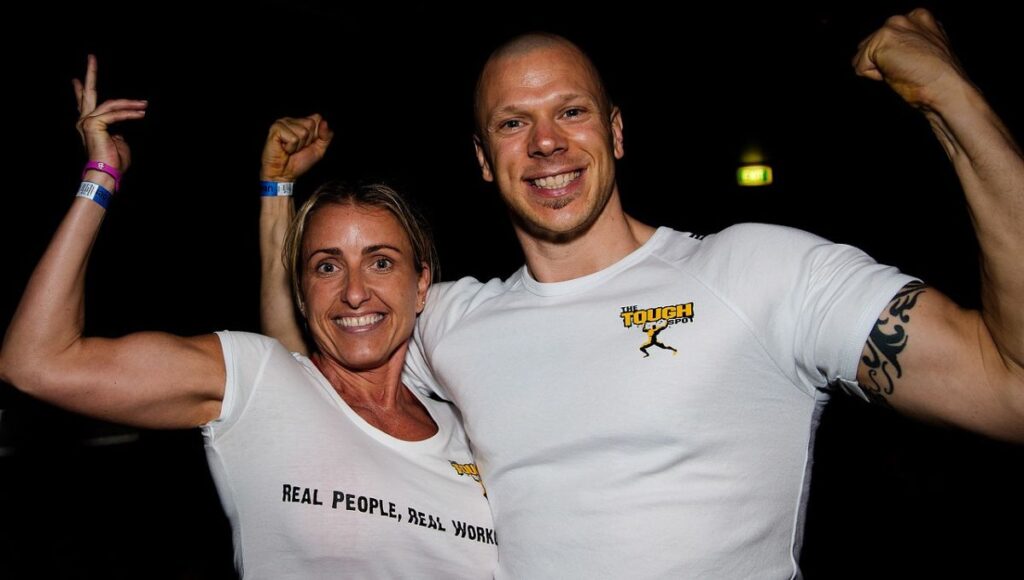A well-structured morning routine sets the foundation for muscle hypertrophy, recovery, and overall performance. Research suggests that optimising sleep, nutrition, hydration, and training timing significantly influences muscle-building outcomes (Knuiman et al., 2018).
By implementing evidence-based practices, individuals can maximise muscle protein synthesis (MPS), enhance recovery, and improve workout efficiency.
Optimising Sleep for Muscle Growth

Prioritise Quality Sleep
Sleep is critical for muscle repair, growth, and hormonal balance. Studies indicate that sleep deprivation impairs MPS, reduces testosterone levels, and elevates cortisol, a catabolic hormone that hinders muscle gains (Dattilo et al., 2011). Aiming for 7–9 hours of high-quality sleep ensures optimal recovery and growth.
Maintain a Consistent Sleep Schedule
A fixed sleep-wake cycle regulates the body’s circadian rhythm, improving sleep efficiency and hormone secretion. Research shows that erratic sleep patterns disrupt anabolic hormone release, negatively affecting muscle growth (Leproult & Van Cauter, 2011).
Enhance Sleep Quality with Environment and Nutrition
Dark, cool, and quiet sleep environments promote deep sleep stages where growth hormone secretion peaks. Magnesium, glycine, and melatonin supplementation can improve sleep quality and duration (Peuhkuri et al., 2012).
Hydration and Nutrient Timing
 Source: Courtesy of CrossFit Inc.
Source: Courtesy of CrossFit Inc.Hydrate Immediately Upon Waking
Overnight, the body loses fluids through respiration and sweat. Dehydration impairs protein synthesis and muscle contractions (Judelson et al., 2007). Consuming at least 500ml of water upon waking helps restore hydration status, aiding cellular functions crucial for muscle growth.
Pre-Breakfast Protein Intake
Amino acid availability upon waking influences MPS. A high-protein breakfast, particularly rich in leucine, enhances MPS and mitigates muscle breakdown (Atherton & Smith, 2012). Whey protein, eggs, and Greek yoghurt are ideal choices for stimulating muscle repair and anabolism.
Incorporate Healthy Fats and Carbohydrates
Including healthy fats (e.g., nuts, avocado, or omega-3s) supports testosterone production, essential for muscle growth (Volek et al., 1997). Complex carbohydrates provide sustained energy for morning workouts, improving performance and glycogen replenishment (Trommelen & van Loon, 2016).
The Science of Morning Exercise for Muscle Gain
Resistance Training in the Morning
Although testosterone levels peak in the morning, neuromuscular efficiency is lower than in the evening (Sedliak et al., 2008). However, morning training can still be effective if properly structured. Performing compound movements like squats, deadlifts, and bench presses stimulates significant muscle activation and metabolic stress (Schoenfeld, 2010).
Dynamic Warm-Up for Enhanced Performance
Morning stiffness due to lower body temperature and reduced joint mobility can impact performance. A dynamic warm-up incorporating mobility drills, dynamic stretches, and activation exercises improves neuromuscular function and reduces injury risk (McCrary et al., 2015).
Post-Workout Nutrition
An optimal post-workout meal containing high-quality protein and carbohydrates enhances recovery and muscle repair. Consuming 20–40g of protein post-training maximises MPS, with an additional carbohydrate source improving glycogen replenishment (Moore et al., 2009).
Stress Management and Recovery Techniques
Morning Sunlight Exposure
Natural light exposure regulates circadian rhythms and optimises testosterone and cortisol balance. Research indicates that vitamin D from sunlight enhances muscle function and strength (Cannell et al., 2009).

Cold Showers for Recovery
Cold exposure reduces muscle soreness and inflammation while improving circulation. Studies show that cold showers post-workout may enhance recovery and reduce delayed onset muscle soreness (DOMS) (Hohenauer et al., 2015).
Mindfulness and Stress Reduction
Chronic stress elevates cortisol, negatively affecting muscle growth and recovery. Mindfulness meditation, deep breathing, or journaling in the morning can help manage stress and optimise hormonal balance (Pascoe et al., 2017).
Conclusion
A scientifically structured morning routine optimises muscle growth through quality sleep, hydration, nutrient timing, resistance training, and recovery strategies. Implementing these evidence-based habits maximises MPS, improves recovery, and enhances overall performance.
| Key Takeaways |
|---|
| Prioritise 7–9 hours of quality sleep for optimal recovery and muscle growth. |
| Hydrate immediately upon waking to restore fluid balance and support cellular function. |
| Consume a high-protein breakfast with healthy fats and complex carbohydrates. |
| Engage in morning resistance training with proper dynamic warm-ups. |
| Optimise post-workout nutrition with 20–40g of protein and carbohydrates. |
| Manage stress with mindfulness, cold showers, and sunlight exposure. |
References
Atherton, P. J., & Smith, K. (2012). Muscle protein synthesis in response to nutrition and exercise. The Journal of Physiology, 590(5), 1049–1057.
Cannell, J. J., et al. (2009). Vitamin D and muscle function. Medicine & Science in Sports & Exercise, 41(5), 707–713.
Dattilo, M., et al. (2011). Sleep and muscle recovery: Endocrinological and molecular basis for a new and promising hypothesis. Medical Hypotheses, 77(2), 220–222.
Hohenauer, E., et al. (2015). Cold water immersion and recovery from strenuous exercise: A meta-analysis. Sports Medicine, 45, 23–30.
Judelson, D. A., et al. (2007). Hydration and muscular performance: Effects of acute dehydration on strength and power. Journal of Strength and Conditioning Research, 21(2), 464–470.






